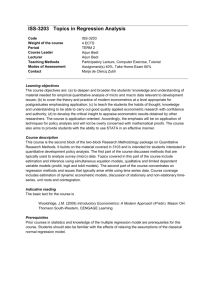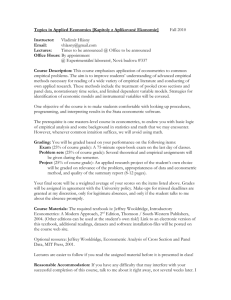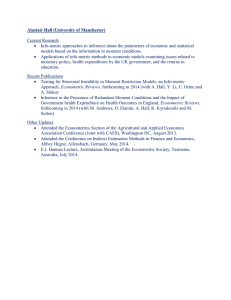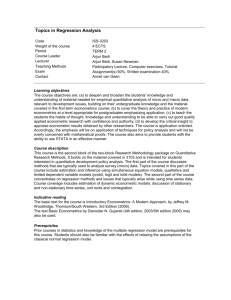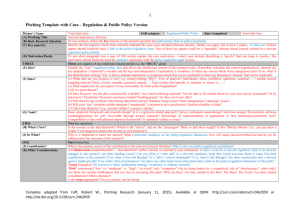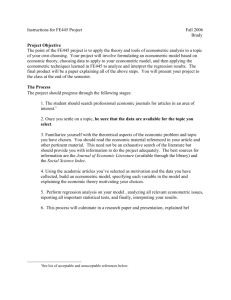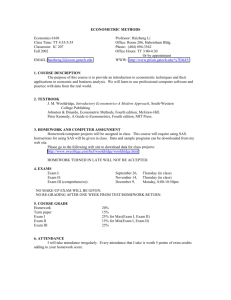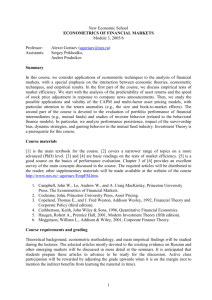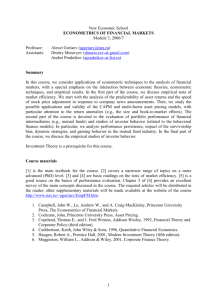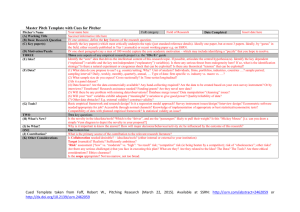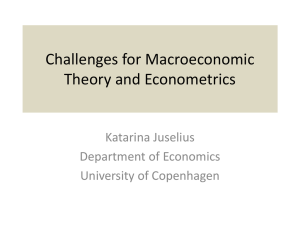ISS-4317-1415 Econometric Analysis of Development
advertisement
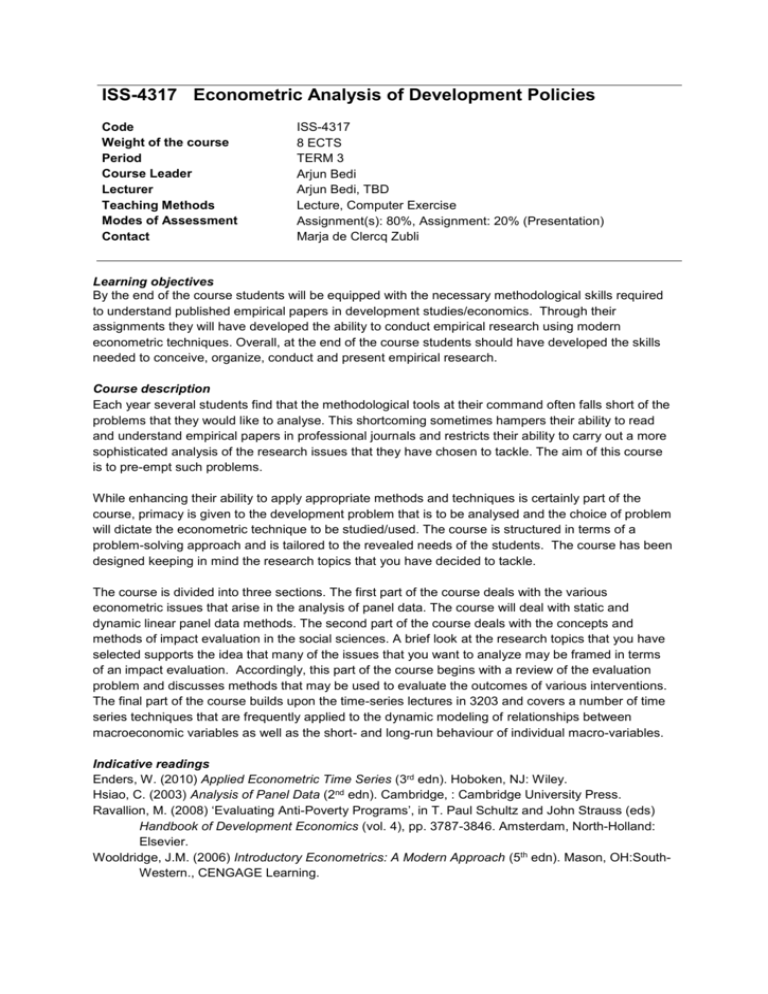
ISS-4317 Econometric Analysis of Development Policies Code Weight of the course Period Course Leader Lecturer Teaching Methods Modes of Assessment Contact ISS-4317 8 ECTS TERM 3 Arjun Bedi Arjun Bedi, TBD Lecture, Computer Exercise Assignment(s): 80%, Assignment: 20% (Presentation) Marja de Clercq Zubli Learning objectives By the end of the course students will be equipped with the necessary methodological skills required to understand published empirical papers in development studies/economics. Through their assignments they will have developed the ability to conduct empirical research using modern econometric techniques. Overall, at the end of the course students should have developed the skills needed to conceive, organize, conduct and present empirical research. Course description Each year several students find that the methodological tools at their command often falls short of the problems that they would like to analyse. This shortcoming sometimes hampers their ability to read and understand empirical papers in professional journals and restricts their ability to carry out a more sophisticated analysis of the research issues that they have chosen to tackle. The aim of this course is to pre-empt such problems. While enhancing their ability to apply appropriate methods and techniques is certainly part of the course, primacy is given to the development problem that is to be analysed and the choice of problem will dictate the econometric technique to be studied/used. The course is structured in terms of a problem-solving approach and is tailored to the revealed needs of the students. The course has been designed keeping in mind the research topics that you have decided to tackle. The course is divided into three sections. The first part of the course deals with the various econometric issues that arise in the analysis of panel data. The course will deal with static and dynamic linear panel data methods. The second part of the course deals with the concepts and methods of impact evaluation in the social sciences. A brief look at the research topics that you have selected supports the idea that many of the issues that you want to analyze may be framed in terms of an impact evaluation. Accordingly, this part of the course begins with a review of the evaluation problem and discusses methods that may be used to evaluate the outcomes of various interventions. The final part of the course builds upon the time-series lectures in 3203 and covers a number of time series techniques that are frequently applied to the dynamic modeling of relationships between macroeconomic variables as well as the short- and long-run behaviour of individual macro-variables. Indicative readings Enders, W. (2010) Applied Econometric Time Series (3rd edn). Hoboken, NJ: Wiley. Hsiao, C. (2003) Analysis of Panel Data (2nd edn). Cambridge, : Cambridge University Press. Ravallion, M. (2008) ‘Evaluating Anti-Poverty Programs’, in T. Paul Schultz and John Strauss (eds) Handbook of Development Economics (vol. 4), pp. 3787-3846. Amsterdam, North-Holland: Elsevier. Wooldridge, J.M. (2006) Introductory Econometrics: A Modern Approach (5th edn). Mason, OH:SouthWestern., CENGAGE Learning.
